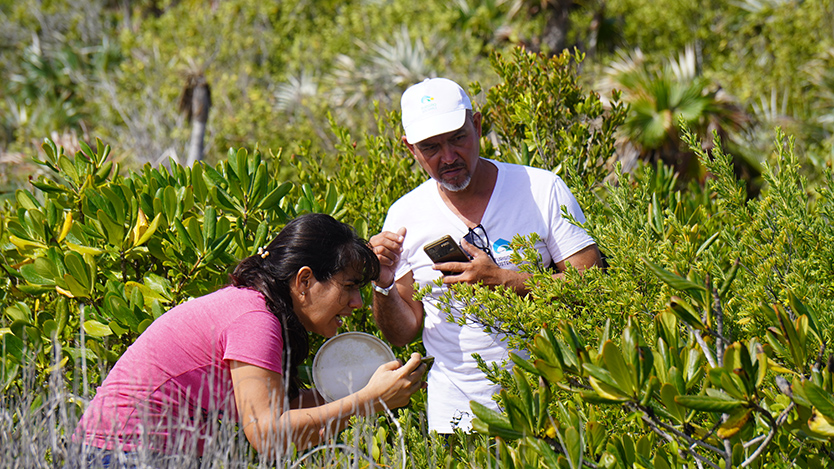Sumptuous hotel facilities, beaches with blue-green waters and fine white sands can be found in different regions of America, mainly in the insular Caribbean, however, many prefer Jardines del Rey, for the warmth of the resort and the excellent combination of marine and land landscapes, consistent with the name of the northern cay of Ciego de Avila.
The natural values constitute the element that marks the competitiveness of this destination, recognised as the second sun and beach destination in Cuba and one of the most prominent in the Caribbean, which is why it is important to understand the interdependent relationship between tourism and nature, in order to guide the development of the tourism sector towards sustainability, where the economic, social and environmental dimensions find a point of equilibrium.
Promoting sustainable tourism in the coastal zone of an island also implies increasing resilience to climate change, which requires the implementation of adaptation and mitigation measures that will reduce vulnerabilities on the coast, protecting both the natural elements and the infrastructure created for tourism activities.
To achieve this, the international Sustainable Tourism project, financed by the Global Environment Facility and with one of its two intervention areas in Jardines del Rey, will create numerous opportunities during the period 2023-2029 by encouraging actions aimed at conserving biodiversity and mitigating the effects of a changing climate.
The scientific and tourism sectors – the latter represented by the Iberostar Daiquirí, Starfish Cayo Guillermo, Vigía, Tryp Cayo Coco, Sol Cayo Coco, Meliá Cayo Coco, Meliá Costa Rey and Mojito hotels – are joining forces to strengthen the institutional, regulatory and economic-financial framework for sustainability, integrate biodiversity conservation into their management, and demonstrate low greenhouse gas emission standards, procedures and technologies.
This global initiative also contemplates knowledge management as an essential element to bring about the necessary transformations in tourism operations, so that sustainable products and services are conceived, capable of becoming new paradigms for this industry in the country.
Implemented by the United Nations Development Programme (UNDP) for the Ministry of Tourism, considered the main beneficiary, the international project adopts the mechanism of environmental and social safeguards, which ensures sustainable and socially responsible actions; in addition to incorporating the gender perspective and intersectionality in its actions.




